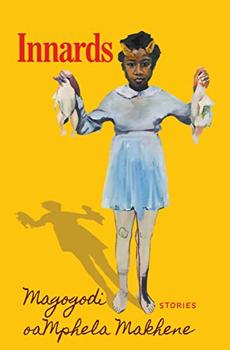Page 2 of 2
There are currently 12 member reviews
for Innards
-
Sally H. (Homosassa, FL)
Innards
I have no doubt that the author is a talented writer. And as with slavery, the US and other governments' dealing with indigenous peoples, and similar abominations, light needs to be shown on apartheid so that it is clearly seen for its abhorrence. Unfortunately, I found this book confusing and really couldn't tell what was going on or who was saying what much of the time. Because of that, I couldn't enjoy or appreciate it and cannot recommend it.
-
Leslie G. (Peabody, MA)
Relevant but Confusing
The title of the book suggests inner turmoil. However, there is much external turmoil also. Throughout the interconnected stories, there hangs an overlying sense of the seeming futility in being able to overcome oppression. While the book is enlightening in many respects, there are some confusing elements. A glossary of terms or words with which some readers may not be familiar might be helpful.
-
Susan W
An important work, but not for me
There are important stories told in Innards, however I found it difficult to read. I was tripped up by characters names and confused by the use of African place names and dialect. They are important to the author's story, but the language only got in the way of the plot for me. I was unable to finish reading the book, to my dismay, as I was keen to learn more about this place and time. Hopefully others will find these stories engaging.
-
Brenda S. (Sebring, FL)
Not worth the effort
This is a difficult book to dredge through. There is the language issue; there are times it is necessary to skim over the words until a recognizable one pops up again. Then there is the issue of rather offensive sections that weren't required for understanding the basic story. This book won't make you a better person for having read it. No recommendation can be given on this one.
-
Joyce M. (Arlington, VA)
Not my cup of tea
This book was nothing like what I was expecting. I really didn't like it but forced myself to read it in its entirety in case upon reflection I would see it in a more positive light. I did not. A brief description of the novel and the author's note to the reader gave the impression that I would learn about the impact that almost 400 years of slavery, colonization, and apartheid had on Africans. I missed the message because I was unable to get past the staccato prose, non-English terminology that I didn't understand, foul language, gross descriptions, and borderline misogyny. It's possible that the way the book is written it may have more meaning to those who experienced or who are familiar with what African life was like in the past. I'm planning to read Africa Is Not A Country by Dipo Faloyin and wonder if some of what I read in this book will be reflected in his.
